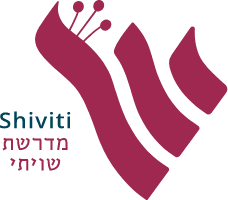By Yehudis Golshevsky
I’ve always felt that one of the most uplifting elements of these parashiyos — and there are many — is the promise that, after all is said and done, we are definitely going to do teshuvah as a People. “All these things” — blessings and curses — will befall us, but afterward we’ll be restored to Hashem, He will bring us back to Eretz Yisrael and provide for us beautifully. And then, “Hashem, your G-d, will circumcise your heart and the hearts of your children to love Hashem, your G-d, with all your heart and soul, in order that you may live.” What is this “circumcised heart”? The Ramban explains there that this is a reflection of the Divine promise, “One who seeks to purify himself is helped [from above]” (Shabbos 104). The circumcised heart no longer feels the desire to do wrong — it has had its husk cut away from it, and all that remains is the fullness of the desire to serve G-d. This is the promise that our Creator makes to us; after you’ve gone through everything that you need to experience, personally and collectively, you will be free from the inclination to do evil.
Rav Yaakov of Lissa draws our attention to another nuance, rooted in a teaching of Rabbeinu Yonah. The circumcised heart receives assistance from Above to accomplish the teshuvah that it cannot manage on its own. Sometimes, we lack the understanding of what we need to repair, of what we need to do to make the repair, or the means to carry it out. Our yearning, however, draws down heavenly assistance — we don’t circumcise our own hearts, it’s done for us. It’s a gift. (Tzror HaMor, loc cit)
One of the well-known acronyms of Elul is found in this verse: “Es levavcha v’es levav… Your heart, and the hearts [of your children]…” Rebbe Nachman of Breslov taught that this is a secret of teshuvah — when parents repent deeply of their own sin, it helps to uproot the same sin from the heart of their offspring. We can’t change other people, we cannot make choices for our children, but because our souls are bound up together with theirs, when we make a change in ourselves, it can have the power to reach them. (Likutei Maharan I:141) And if not them, then their children.
I wish you a beautiful, sweet new year, filled with blessings both spiritual and material, good health, and joy. May your final Shabbos of 5782 be uplifting, delightful, and filled with good, and may it be a sign of wonderful things to come.
Gut Shabbos! Shanah tovah! A gut, gebentsched yohr!
Yehudis
